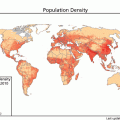Classification: ICD-9 062.0; ICD-10 A83.0
Syndromes and synonyms: Japanese B encephalitis.
Agent: Japanese encephalitis virus (JEV), an enveloped, single-stranded, positive sense RNA flavivirus. It is divided into five antigenic groups and four genotypes, which may be linked to differences in virulence.
Reservoir: Wading birds (Ardeidae) and domestic pigs which amplify the virus asymptomatically; mosquitoes by transovarial transmission and possibly overwintering adults.
Vector: Mosquito species that breed in rice fields and marshes, principally Culex tritaenorhynchus group; also C. gelidus and C. vishnui.
Transmission: By mosquito bite.
Cycle: Only ardeid birds and pigs have a sufficient viremia to infect mosquitoes. The mosquito picks up the virus from the blood of a viremic host. After a few days, the virus reaches the salivary glands and is injected into the next host when bitten. Humans are incidental and dead-end hosts as viremia does not reach sufficient levels to infect mosquitoes.
Incubation period: 6–16 days.
Clinical findings
Stay updated, free articles. Join our Telegram channel

Full access? Get Clinical Tree




